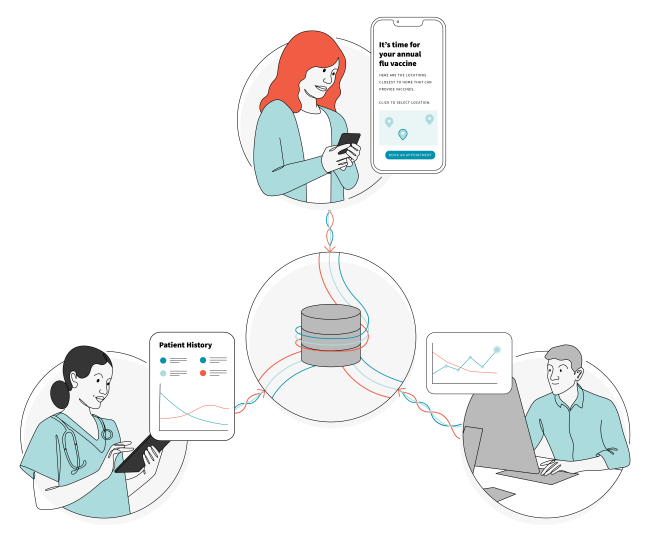
Equity is not easy. It’s tough enough to talk honestly about equity in US healthcare, and troublingly difficult to create solutions that can, and will, be implemented.
But trouble—good trouble, as Representative John Lewis once put it—is precisely what interests the people on the latest episode of The Resonance Test.
Dr. Djinge Lindsay, MD, MPH, and Arianne Graham are here to talk about their stalwart attempts to solve for equity. Johnathon Swersey, Senior Director of Innovation at EPAM, creates all kinds of necessary trouble by putting tough questions to our two guests.
Swersey begins by addressing the idea that given the less-than-optimal state of US healthcare, why are we focusing on equity?
“If we don't fix the health disparities in our country, those will spread to the rest of the population and it becomes not just a public health issue, but frankly, a national security issue,” says Graham.
Or conversationalists agree that there has been much talk about equity but that talk is far too insufficient.
“There has been a lot of verbal acknowledgement of the fact that structural racism is pervasive and all of our systems, including healthcare, but that verbal acknowledgement hasn't necessarily been followed with action,” says Dr. Lindsay.
To move things forward, we need to align our moral imperatives with proper levels of funding. Dr. Lindsay asks us to consider the history of social change: “There have been few successful social change movements that haven't been aligned with some financial incentive for those who hold power.”
One such alignment must just be possible with the new Health Equity Index that's being introduced to Medicare Advantage. Healthcare players, says Dr. Lindsay, will now be required to not only “look at their data, not only stratify their data but to action on closing disparity gaps. Closing differences in health outcomes for people based on their race.”
Ultimately, it’s about beginning from what Graham calls “an asset- as opposed to a deficit-based approach.” She says that understanding the history, pain, and ramifications of structural racism is important but also “there is space to celebrate what makes different cultures unique and use that as a leverage point to engage folks in conversation about health. To tap into the trusted messengers, trusted leaders, and representative figures within communities that are delivering messages of self-actualization and self-efficacy in managing our health.”
Let’s hope we can manage to take a step in a healthier direction. Begin by listening.
Host: Alison Kotin
Engineer: Kyp Pilalas
Executive Producer: Ken Gordon



